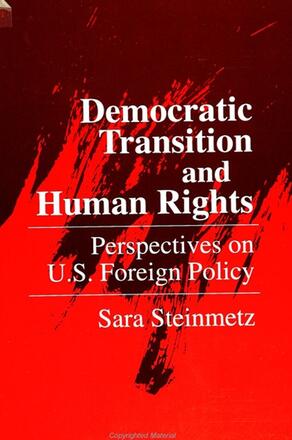
Democratic Transition and Human Rights
Perspectives on U.S. Foreign Policy
Alternative formats available from:
Description
This book analyzes U.S. foreign policy in relation to human rights and democratic development abroad. Its purpose is to determine if, and how, human rights policies, or their neglect, have led to Realpolitik successes for the United States. In addition, it addresses the issue of how Washington might best respond to challenges in which a choice apparently must be made between support for democracy and preservation of U.S. national interests.
Through a comparative analysis of Iran under the Shah, Nicaragua under the Somozas, and the Philippines under Marcos, Steinmetz evaluates the effectiveness of American priorities in authoritarian states that were perceived to protect U.S. interests. Rejecting the policy prescriptions of the neoconservative and neorealist schools, she concludes that protection of human rights abroad is desirable, not because of its moral implications per se, but because of its positive contributions to the preservation of U.S. national interests.
Sara Steinmetz teaches in the Department of Political Science at Rutgers University.
Reviews
"The text is clearly written and is a thorough survey of U.S. foreign policy in the three case areas. I particularly like the belief system or perspective comparison that is used as analytical framework for each case." — Steven L. Lamy, University of Southern California